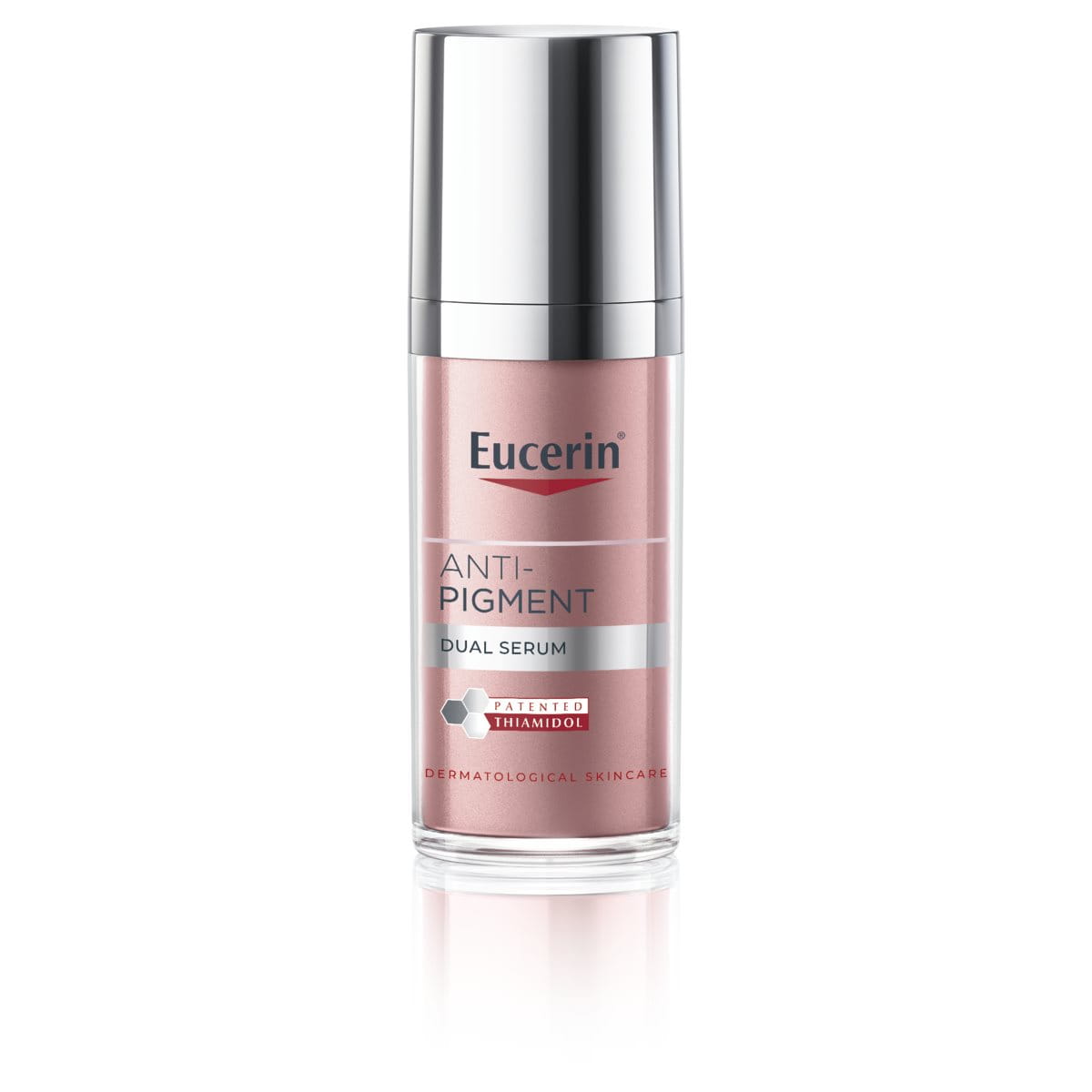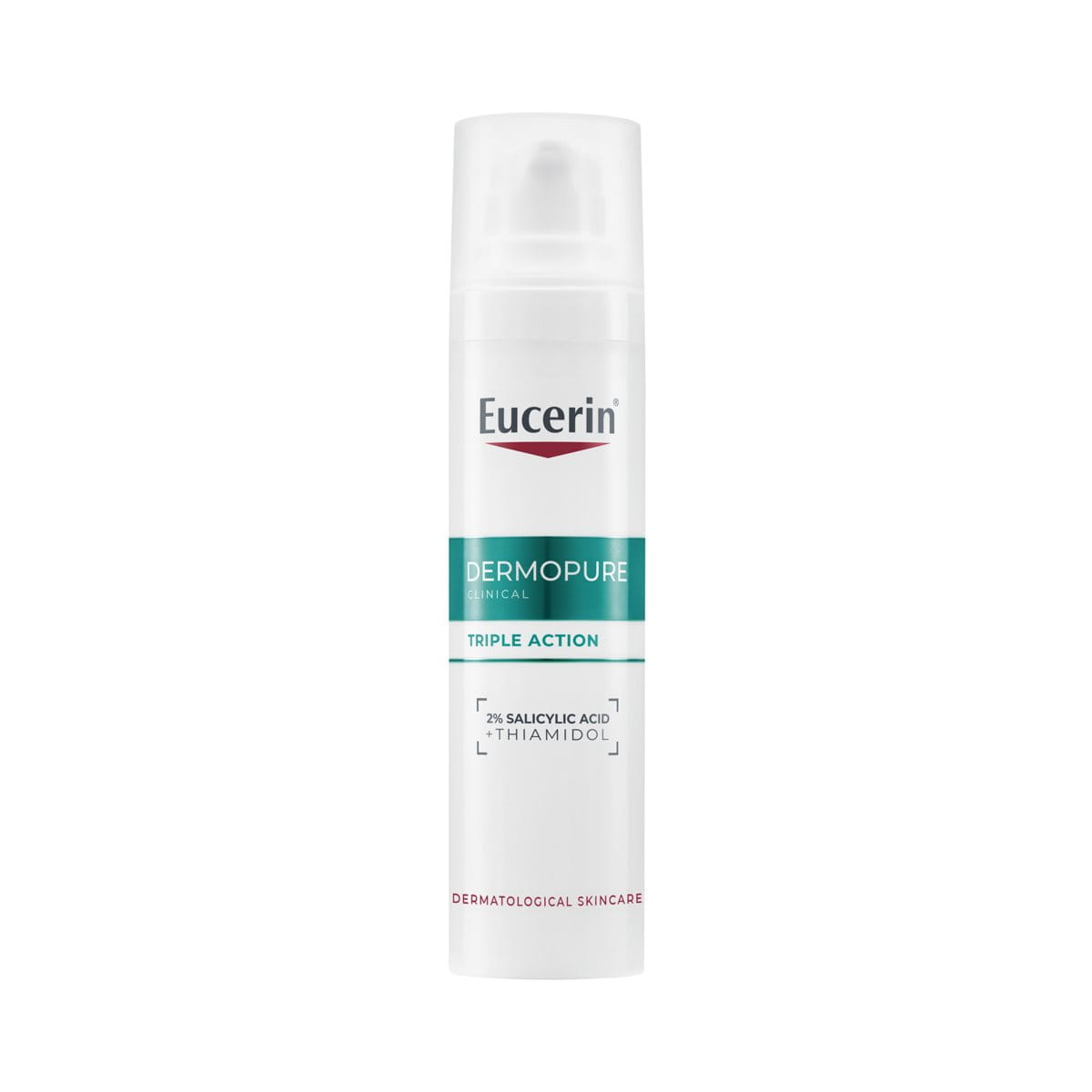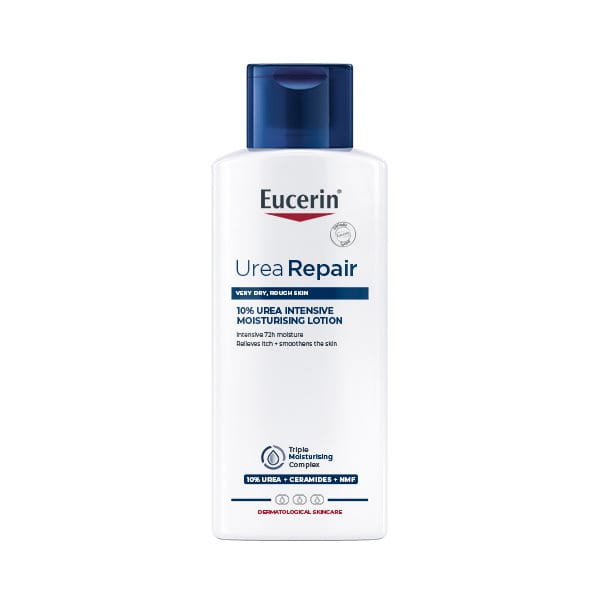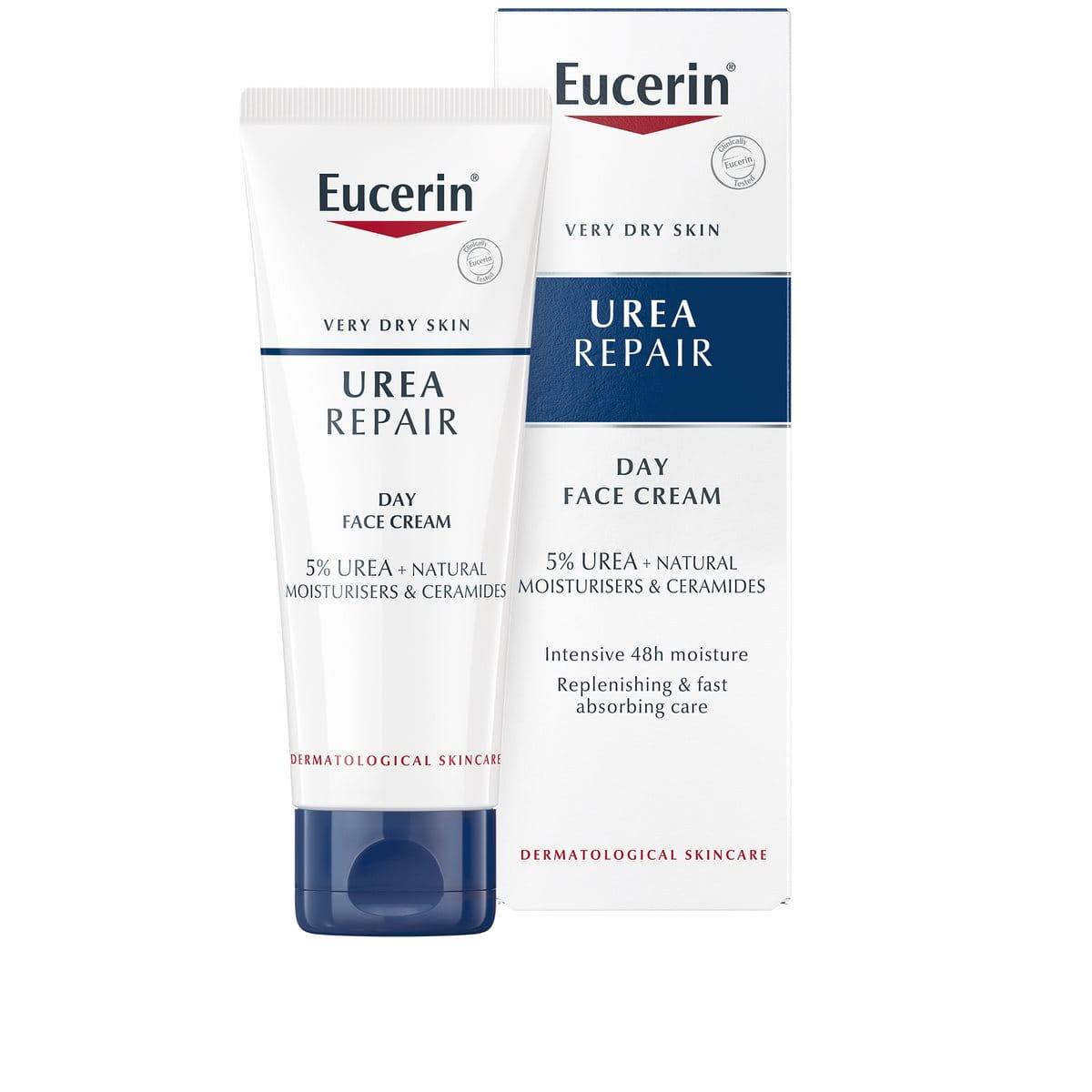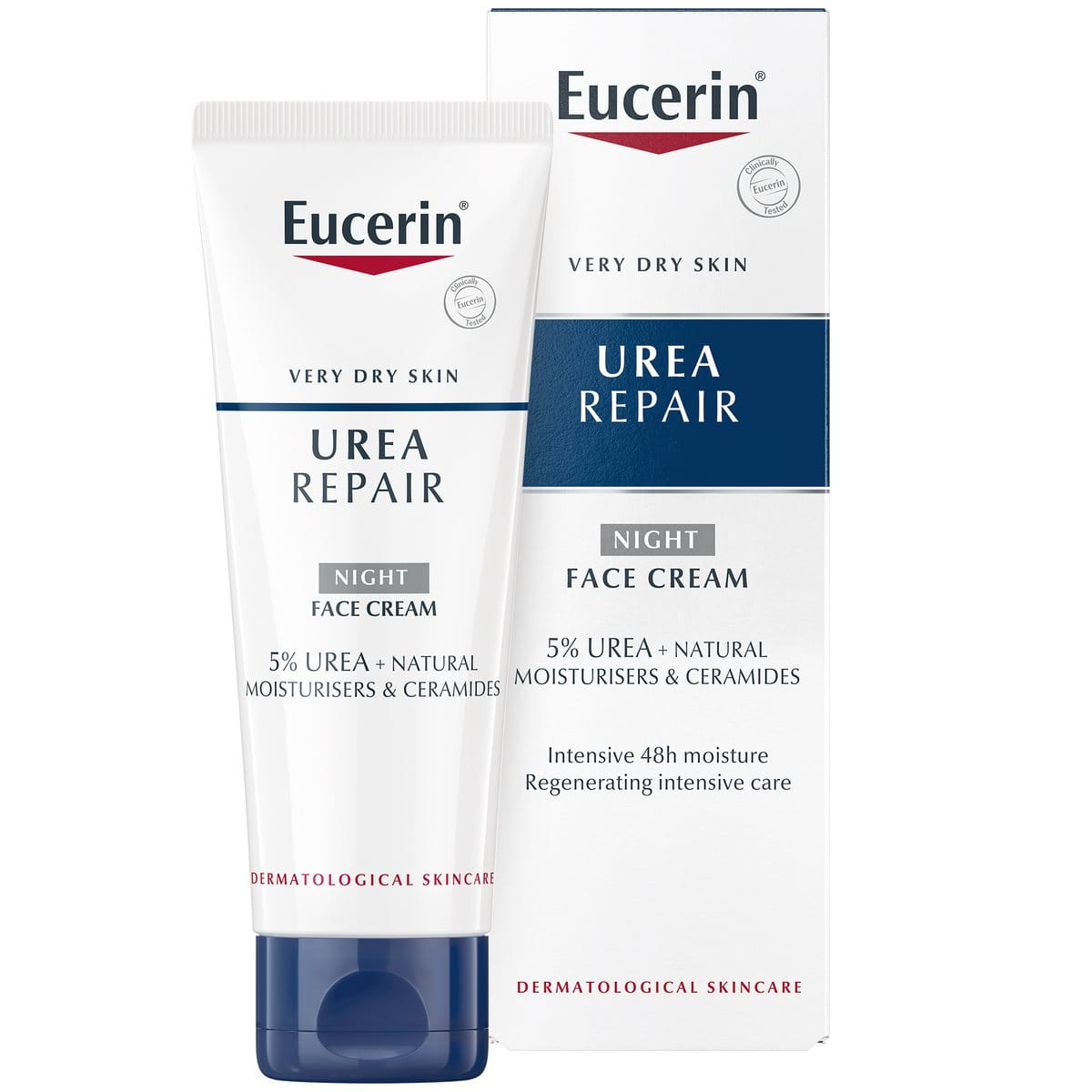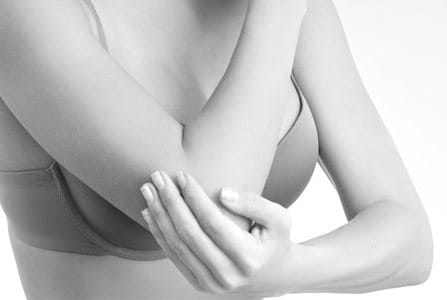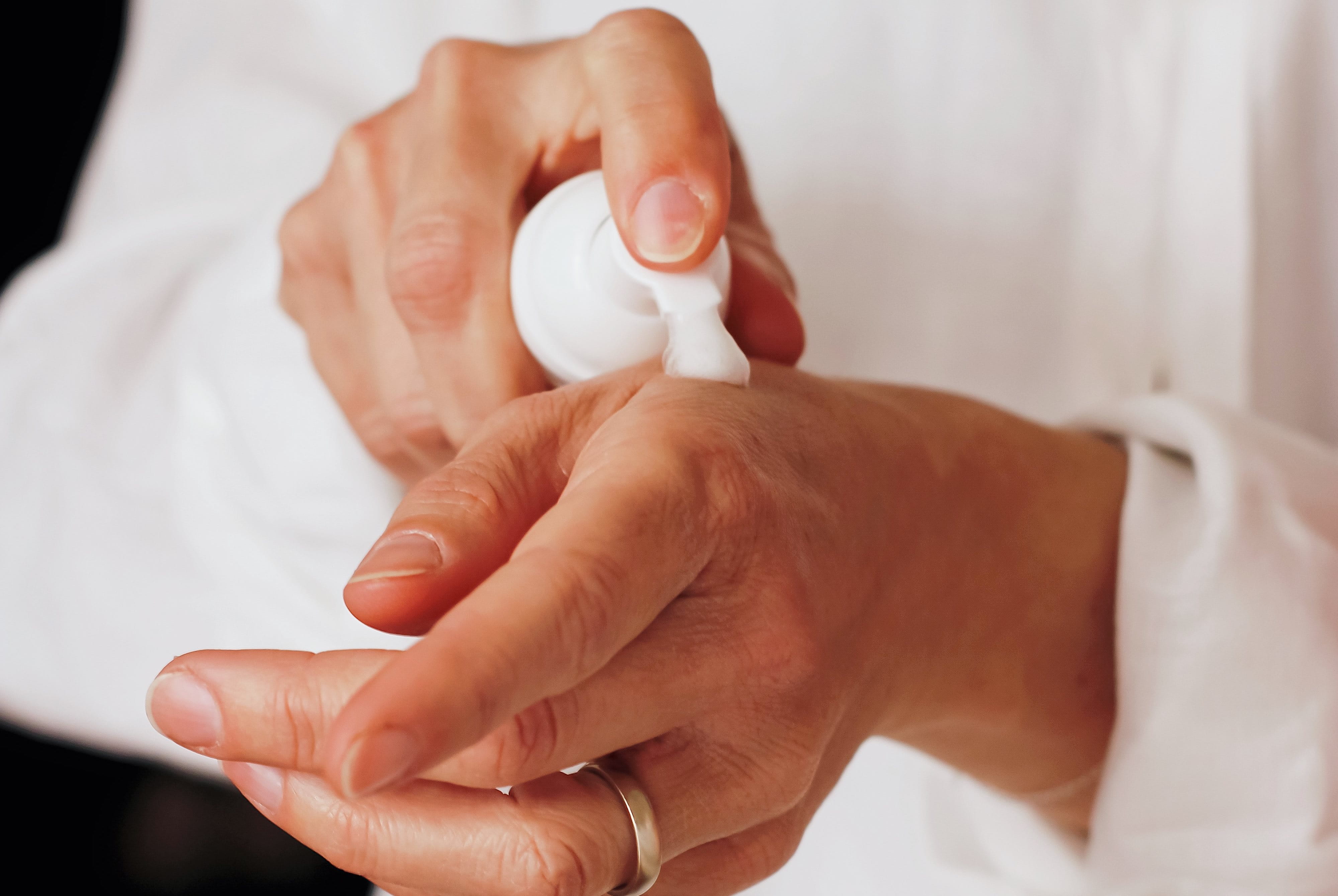Psoriasis is a skin condition which results in the formation of thick, red patches on the skin. Plaque psoriasis is the most common form of psoriasis, and is experienced by 80-90% of those with psoriasis. Other common forms of psoriasis include scalp psoriasis and guttate psoriasis. This article outlines the causes, symptoms of plaque psoriasis and how you can treat psoriasis plaques to reduce their appearance.
What is plaque psoriasis?
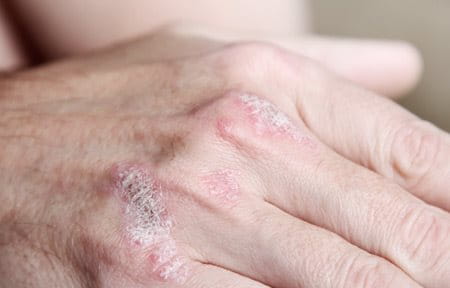
Plaque psoriasis is the development of red, raised patches on the skin with white flakes or scales. These red plaques are caused by new skin cells building up in the top layer of your skin (the epidermis) faster than your body can remove them. As a result the blood vessels below the skin become swollen, causing the appearance of red, inflamed and often itchy plaques on the skin. With moderate to severe plaque psoriasis, the red patches can crack or bleed, causing the plaques to be painful and itchy. The most commonly affected areas include the scalp, knees, elbows and back, although plaque psoriasis can form anywhere.
Is plaque psoriasis contagious?
Although plaque psoriasis has the appearance of a rash, it is not contagious. You cannot catch plaque psoriasis from contact with someone who has it.
What are the symptoms of plaque psoriasis?
Plaque psoriasis is characterised by raised, red patches with clear edges on the skin covered with a buildup of whitish dead skin cells (also called scales). Compared to other extremely dry skin conditions such as eczema, plaque psoriasis appears thicker and more inflamed.
Psoriasis is classified as erythrosquamous as both the blood vessels below the skin and the deeper epidermal skin layers are affected. Psoriasis plaques can either be mild, moderate or severe, depending on the level of severity.
Types of plaque psoriasis
Guttate psoriasis vs plaque psoriasis - what’s the difference?
While plaque psoriasis causes wider plaques on the skin, guttate psoriasis causes much smaller red dots, often in the middle of your body as well as the arms, legs, scalp, face, and ears. Unlike plaque psoriasis, only around 10% of those affected by psoriasis experience guttate psoriasis. Most common in children and young adults, guttate psoriasis can be triggered by respiratory infections such as strep throat, the flu or a cold.
What causes plaque psoriasis
Doctors are unsure of what causes plaque psoriasis, although it is believed to be the result of an autoimmune disease in combination with environmental factors.
An autoimmune disease causes the immune system to attack the body’s own healthy cells as if it's fighting an infection. With psoriasis, this causes new skin cells to grow much faster than normal, resulting in the build up of skin cells in thick patches on the skin. This causes the blood vessels underneath the affected skin to become swollen, resulting in red, inflamed plaques.
As plaque psoriasis is caused by an autoimmune response, episodes of plaque psoriasis are often exacerbated by environmental triggers which result in a reaction by your immune system. This can be a reaction to an injury on the skin, such as severe sunburn, or to certain medication, such as lithium used to treat bipolar disorder.
One of the most common triggers is stress, which causes the body to release chemicals that trigger an inflammatory response.
Is plaque psoriasis chronic?
Plaque psoriasis is a chronic, autoimmune condition which results in recurring flare-ups often followed by periods of no symptoms.
Is plaque psoriasis hereditary?
Psoriasis is considered a hereditary disease, as most people who develop some form of psoriasis will have at least one member of their family with the condition. However, inheriting the genes which cause psoriasis is not enough to result in the disease developing.
Around 10% of people are born with the genes needed to develop psoriasis, yet only 3% of people actually have the disease. Your risk of developing psoriasis depends upon you being exposed to a trigger which causes the autoimmune response responsible for psoriasis plaques.
Is plaque psoriasis curable?
There is no cure for psoriasis of any kind including plaque psoriasis, however you can take steps to relieve the symptoms. As a chronic disease, often those with plaque psoriasis will have periods where the skin condition flares up then goes away again.
The best way to keep flare ups to a bare minimum is to avoid triggers, such as mental stress, skin injuries including sun damage, cold weather and smoking.
Plaque psoriasis treatment: What's the best way to control plaque psoriasis?
As plaque psoriasis is not curable, the goal of any treatment is to reduce the frequency and severity of the flare-ups. There are various forms of treatment for plaque psoriasis available, including:
Proper skincare
Using skincare that is clinically and dermatologically proven to help soothe and calm psoriasis plaques can help to relieve itchiness from the condition and treat milder flare ups. Our skin acts as a barrier to external irritants, locking in essential moisture needed to keep the skin soft and hydrated. When that barrier function is impaired, as with psoriasis, the skin can quickly lose moisture and become extremely dry or even cracked as a result.
Our UreaRepair range focuses on repairing the skin’s natural protective barrier to help prevent further hydration loss. Ingredients such as urea, lactate and ceramides are used to keep moisture in and provide immediate relief from extreme dryness. Products from this range, such as the UreaRepair PLUS: 10% Urea Body Lotion and UreaRepair ORIGINAL 10% Urea Cream are suitable for the treatment of mild psoriasis, as they are designed to provide intense moisturisation and protection for extremely dry, itchy and scaly skin.
Topical medications
Topical medications such as prescription creams are normally the first type of treatment used for psoriasis plaques, especially for relieving mild to moderate cases. These creams, placed directly on the affected areas, aim to either help reduce the inflammation or slow the growth of skin cells. For mild and moderate plaque psoriasis, topical treatments are often sufficient for keeping the condition under control, although it can take several weeks before there is a noticeable effect. Topical treatments come in various forms:
- Emollients: Hydrating treatments aimed at reducing moisture loss from the skin and to cover the affected areas with a protective film. Emollients are often effective at reducing itching and scaling.
- Steroid creams (topical corticosteroids): Steroid creams or ointments that work by reducing inflammation in the affected areas, slowing the production of skin cells and reducing itching. Steroid-based medication should be used carefully, as overusing steroid creams can result in skin thinning.
- Vitamin D analogue creams: Vitamin D analogue creams are often used alongside or in the place of steroid creams. Like steroid creams, they work by slowing the production of skin cells and also have an anti-inflammatory effect.
- Coal tar: Coal tar is a long-standing treatment for psoriasis, but how it works is not exactly known. This thick, heavy oil effectively reduces scales and inflammation caused by psoriasis, as well as itchiness.
- Dithranol: Dithranol (also known as anthralin) is a medicine that is very effective in treating chronic plaque psoriasis by suppressing the production of skin cells.
Eating healthily
Although there is no evidence that specific food groups influence psoriasis flare ups, losing weight may help to suppress plaque psoriasis symptoms. Eating healthily may also help to reduce inflammation as well as ensuring the skin is being provided with nutrients.
Advanced treatment for psoriasis plaques
For moderate to severe cases of plaque psoriasis, plaques may be unresponsive to topical treatments, in which case advanced psoriasis treatment is required. These include phototherapy and systemic treatments.
Phototherapy: Phototherapy, or light therapy, involves using natural or artificial light to treat various skin conditions.
Systemic treatments: Systemic treatments work throughout the entire body to calm your immune system or slow the production of skin cells. There are two main types of systemic treatments non-biological and biological
Our brand values

We deliver a holistic dermo-cosmetic approach to protect your skin, keep it healthy and radiant.

For over 100 years, we have dedicated ourselves to researching and innovating in the field of skin science. We believe in creating active ingredients and soothing formulas with high tolerability that work to help you live your life better each day.

We work together with leading dermatologist and pharmacist partners around the world to create innovative and effective skincare products they can trust and recommend.
